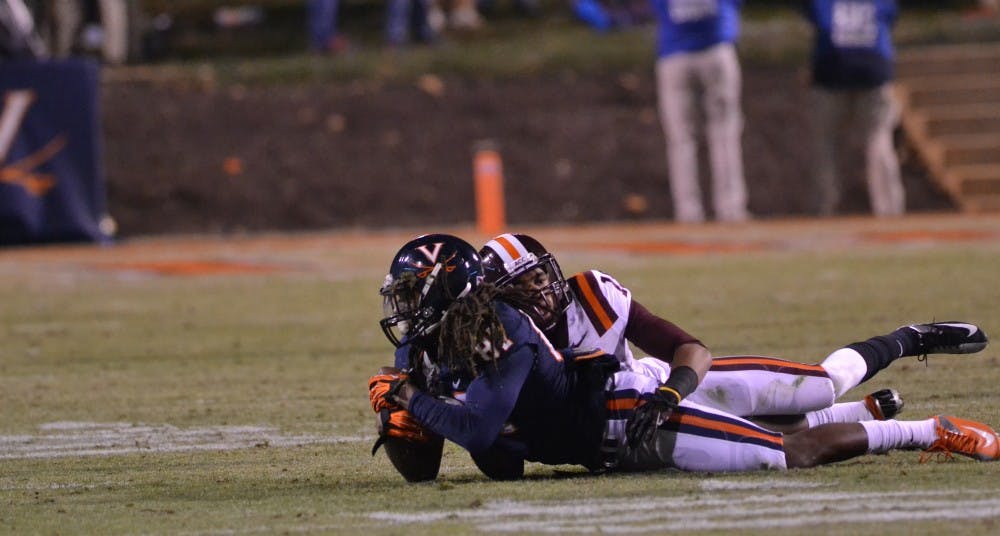Today we mourn the loss of the Virginia football program, a program that brought joy to so many, but whose life tragically dwindled away this fall.
The football program was 125 years old, born in 1888. It perished Saturday evening, Nov. 30, at Scott Stadium in its lifelong hometown of Charlottesville, Va.
Throughout its life, the Virginia football program helped develop countless young men into superior football players, among them legends such as Bill Dudley and Heath Miller. It also took great pride in the classroom achievements of its players, as the team continuously produced Academic All-ACC caliber student athletes.
With two ACC Championships in 1989 and 1995 and 7 bowl wins in its lifespan, the program was never a powerhouse, but it posted its share of highlights. Its fondest gridiron memory in recent years was a 2011 win at Florida State, 14-13. The program also loved quieter, more intellectual pursuits, and could often be found reading in the MacGregor Room or wandering Grounds deep in contemplation.
The program’s last year of life was a troubled one. Friends and supporters delighted as the season opened with an exciting comeback victory against Brigham Young, and junior tailback Kevin Parks would eventually rush for an impressive 1,031 yards, but the year’s lowlights dwarfed its bright spots.
In the last few months, the program struggled with offensive difficulties and flaws in its coaching system that would ultimately lead to its demise. Coach Mike London, though his intentions were never sinister, was, in the end, the cause of death for the program. In his four years with the squad, he proved passionate and deeply loyal to the program, but, unfortunately, unable to care for such a fragile being.
The program is succeeded by London, who will remain in Charlottesville for at least another year attempting to make amends for the damage he has done. It is also succeeded by new members and 5-star recruits Andrew Brown and Quin Blanding, as well as a wealth of underclassmen. Though Brown and Blanding were too young to know the program in its glory days, they, with their teammates, will nonetheless try to do right by its legacy.
The service was held at Scott Stadium, as it seemed only fitting, and Craig Littlepage officiated. Afterward, mourners reconvened at The Virginian. Friends and longtime supporters gathered around glasses of Evan Williams — the program’s old favorite — and reminisced about good times: rushing the field after beating Miami, Jake McGee’s iconic catch against Penn State, and driving hours down I-85 for the 2011 Chick-fil-A Bowl. London was not on hand to offer an apology, but sent his condolences through defensive coordinator Jon Tenuta. Tenuta received a warm welcome for his heroic efforts to salvage the program in its final, desperate moments.
The loss of the Virginia football program is a great blow to so many who have called Charlottesville home. Yet, after all the bitter tears shed and hands wrung about the demise of a program so many had cared for, it is imperative to remain hopeful. August 2014 approaches, offering the chance for a new kind of program to emerge from the ashes. We cannot dwell on the past, but must instead look fondly at days past, and keep them with us as we move forward.
Thomas Jefferson once wrote, “My theory has always been that if we are to dream, the flatteries of hope are as cheap, and pleasanter, than the gloom of despair.” And so, in the face of death, we must despair, but find hope for years to come.
Of course, if that’s not good enough, the Alumni Association can always just raise $8.06 million and get Mike London out of Charlottesville. Go Hoos.







